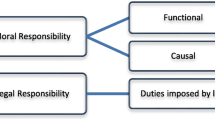Abstract
This paper analyzes the process of policy convergence between the European Union (EU) and Korea with respect to regulating chemicals. Its framework for policy convergence includes international and domestic influences on why and how policy convergence occurs, what is transferred, and what risks are involved. The following findings flow from the case study analysis. First, policy convergence between Korea and the EU has occurred not only due to external factors such as diffusion and regulatory competition but also due to internal factors including concerns about competitiveness and domestic environmental and health accidents relating to chemicals. Second, policy convergence between Korea and the EU results in many similarities, but differences as well. Similarities between Act on the Registration and Evaluation of Chemicals (AREC) and the Regulation of Registration, Evaluation and Authorization of Chemicals of the EU (EU REACH) show that chemical control would be strengthened as the end result of policy convergence. On the other hand, the differences between AREC and EU REACH imply that policy from the EU was adjusted in Korea in response to domestic conditions. This policy adjustment creates risks that can weaken the original purpose of policy and possibilities that can strengthen it. Lastly, despite adjustments that weakened some components of chemical controls, policy convergence between the EU and Korea results in Korean society entering a new phase of managing chemicals for a safer society.


Similar content being viewed by others
References
Biedenkopf K (2013) Assessing possibilities for enhanced EU-South Korea cooperation on chemical regulation. In: Marx A et al (eds) EU-Korea relations in a changing world. KU Leuven, Amsterdam, pp 167–193
Busch P, Jörgens H (2005) The international sources of policy convergence: explaining the spread of environmental policy innovations. J Eur Public Policy 12(5):860–884
Choi YJ (2012) A hardship that a Korea-REACH faces. Weekly Kyunghayng No 989. http://newsmaker.khan.co.kr/khnm.html?mode=view&artid=201208131747581&code=114. Accessed on November 26, 2014.
Coalition of Korean NGOs (2013) A press release: public health should be considered first!: AREC legislative proposal should be passed at this term of the National Assembly. 2013. 4.26. Available from http://eco.or.kr/, Accessed on November 1, 2014.
Delegation of the European Union to the Republic of Korea (DEURK) (2013) Fact File Edition 2013: European Union-South Korea trade and investment relations. DEURK, Seoul
Drezner DW (2005) Globalization, harmonization, and competition: the different pathways to policy convergence. J Eur Public Policy 12(5):841–859
De Ville F (2012) European Union regulatory politics in the shadow of the WTO: WTO rules as frame of reference and rhetorical device. J Eur Public Policy 19(5):700–718
Heyvaert V (2009) Globalizing regulation: reaching beyond the borders of chemical safety. J Law Society 36(1):110–128
Holzinger K, Knill C (2005) Causes and conditions of cross-national policy convergence. J Eur Public Policy 12(5):775–796
Kim SB (2013) A seminar report on establishing the Act on Registration and Evaluation of Chemicals in Korea: we want a safe society free from toxic chemical substances. Citizens’ Action in Responding to Cancer Causing Substances, Seoul
Knill C (2005) Introduction: cross-national policy convergence: concepts, approaches and explanatory factors. J Eur Public Policy 12(5):764–774
Lenschow A, Liefferink D, Veenman S (2005) When the birds sing: a framework for analysing domestic factors behind policy convergence. J Eur Public Policy 12(5):797–816
Moon SJ, Kim KH (2015) Regulatory policies of toxic chemical substances in Korea: examining toxic substances registration and evaluation act. Ewha Law J 19(2):250–278
Ministry of Environment (MOE) (2011) Press release: A publicly announced draft of the Act on the Registration and Evaluation of Chemicals for preventative chemical substances risk management. Ministry of Environment, Gwachoen, Korea
MOE (2013) The main contents and plans of the Act on the Registration and Evaluation of Chemicals and the Chemical Control Act. Ministry of Environment, Gwachoen, Korea
MOE (2014) The publicly announced drafts of subordinate statues of the act on the registration and evaluation of chemicals and the chemical control act. Available from http://www.me.go.kr/home/web/board/read.do?pagerOffset=10&maxPageItems=10&maxIndexPages=10&searchKey=&searchValue=&menuId=69&orgCd=&boardId=341669&boardMasterId=515&boardCategoryId=&decorator, Accessed on November 27, 2014.
Ministry of Trade, Industry and Energy (MOTIE) and Ministry of Foreign Affairs (MFA) (2013) A comprehensive survey and a trade environment 2013. MOTIE and MFA, Seoul
Naiki Y (2010) Assessing policy reach: Japan’s chemical policy reform in response to the EU’s REACH regulation. J Environ Law 22:171–195
Park JH (2011a) Compatibility of newly introduced bill called “Korean REACH” to WTO regulation. Environ Law Rev 33(2):155–187 (in Korean)
Park JW (2011b) Environmental legal aspects of chemical risk assessment and management. Environ Law Rev 33(2):103–154 (in Korean)
Persson T (2007) Democratizing European chemicals policy: do consultations favour civil society participation? J Civ Soc 3(3):223–238
Trade and Environment Information Network (TEN) (2014) The analysis of AREC and its subordinate statutes and Korean industry’s strategies. KEITI Foreign Environ Regul Trend 112:1–12
World Trade Organization (WTO). (2014). Members progress on a list of best practices in developing and applying regulations. (http://www.wto.org/english/news_e/news14_e/tbt_18mar14_e.htm 〔Nov. 2014〕).
Yoo Y (2013) Continuous chemical accidents: are these good for passing AREC? Available from http://article.joins.com/news/article/article.asp?total_id=10916740, Accessed on 16, November 2014.
Acknowledgments
I would like to deeply thank Professor Sungjin Moon for his initial suggestion of developing this research paper and his very constructive and insightful comments in finalizing this paper. This research was supported by the Basic Science Research Program through the National Research Foundation of Korea (NRF) funded by the Ministry of Education, Science and Technology (NRF-2013S1A3A2054969).
Author information
Authors and Affiliations
Corresponding author
Rights and permissions
About this article
Cite this article
Lee, T. Policy convergence between Korea and the European Union in the field of chemical controls. Asia Eur J 13, 395–412 (2015). https://doi.org/10.1007/s10308-015-0416-z
Received:
Revised:
Accepted:
Published:
Issue Date:
DOI: https://doi.org/10.1007/s10308-015-0416-z



